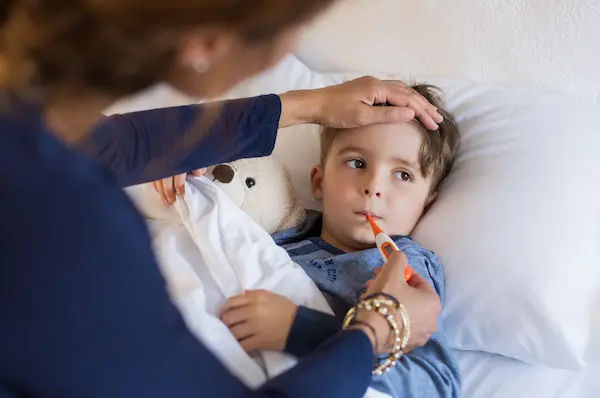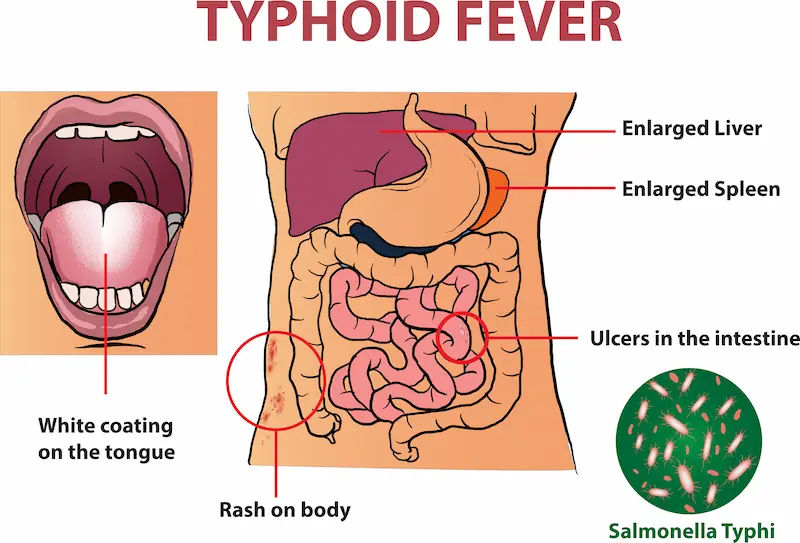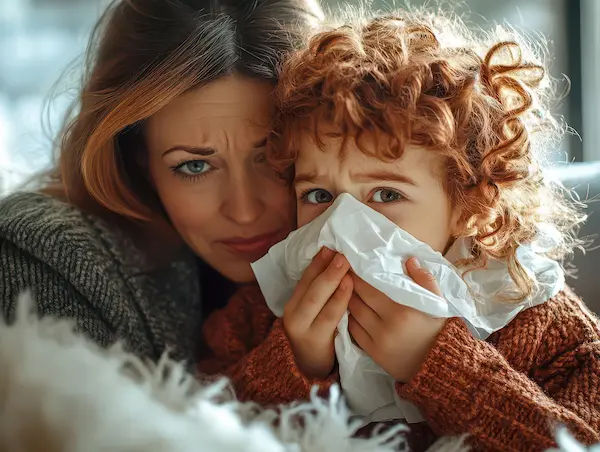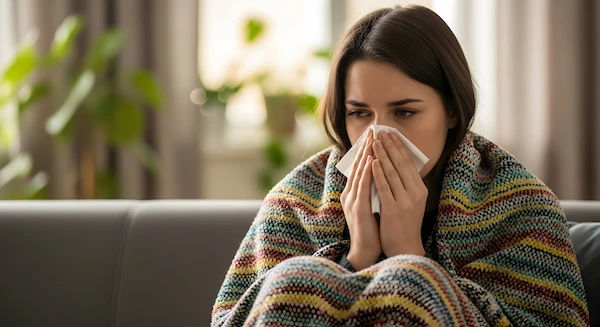World Mosquito Day: A Complete Guide to Prevention and Awareness
Discover the importance of World Mosquito Day, its history, and the dangers of mosquito-borne diseases. Learn prevention tips, awareness strategies, and when to seek medical help.

Written by Dr. Rohinipriyanka Pondugula
Reviewed by Dr. Vasanthasree Nair MBBS
Last updated on 13th Jan, 2026

Introduction
Every year, a tiny insect claims hundreds of thousands of lives, making it one of the deadliest creatures on the planet. World Mosquito Day, observed annually on August 20th, is not a celebration of this pest but a crucial global health observance dedicated to raising awareness about the threats posed by mosquitoes and the diseases they carry. This day marks the groundbreaking discovery by Sir Ronald Ross in 1897 that female Anopheles mosquitoes transmit malaria to humans. This guide will delve into the history of this day, unpack the dangers of mosquito-borne illnesses like malaria and dengue, and provide you with a robust arsenal of prevention strategies. Our goal is to transform awareness into action, empowering you to protect yourself, your family, and your community on this World Mosquito Day and beyond.
What is World Mosquito Day? The Story Behind the Bite
The Historic Discovery of Sir Ronald Ross
The origin of World Mosquito Day is rooted in a monumental scientific breakthrough. On August 20, 1897, British doctor Sir Ronald Ross made the critical discovery that female Anopheles mosquitoes were the vectors for transmitting the malaria parasite. This revelation was a turning point in our understanding of tropical medicine. Ross’s work, which later earned him the Nobel Prize in Physiology or Medicine in 1902, proved that controlling the mosquito population was key to controlling malaria. This day honors his legacy and the ongoing fight against mosquito-borne diseases.
Why Do We Observe It on August 20th?
The specific date serves as an annual reminder of Ross's discovery. It was initially championed by the London School of Hygiene & Tropical Medicine and has since been adopted by health organisations worldwide. The day aims to educate the public about the causes of diseases like malaria and dengue and to highlight the continuous need for research, funding, and community-based mosquito prevention efforts to combat these illnesses effectively.
Consult Top Specialists for Personalised Tips
More Than a Nuisance: Understanding Mosquito-Borne Diseases
Mosquitoes are vectors, meaning they can transmit pathogens from one host to another. Different species carry different diseases, making them a diverse and persistent threat to global health.
Malaria: The Ancient Foe
Caused by a parasite called Plasmodium, malaria is transmitted through the bite of an infected female Anopheles mosquito. According to the World Health Organisation's (WHO) 2022 World Malaria Report, there were an estimated 249 million malaria cases globally in 2022. Symptoms include high fever, chills, sweats, headaches, and vomiting. If not treated promptly, it can become severe and lead to death.
Dengue Fever: The Break-Bone Disease
Transmitted by the Aedes aegypti mosquito, dengue has earned the grim nickname "break-bone fever" due to the severe muscle and joint pain it causes. The National Center for Vector Borne Diseases Control (NCVBDC) in India reports a significant number of cases annually. Symptoms include high fever, severe headache, pain behind the eyes, rash, and mild bleeding. Severe dengue can be life-threatening.
Chikungunya and Zika Virus: Emerging Threats
The same Aedes mosquito species can also transmit chikungunya and Zika virus. Chikungunya is characterised by an abrupt onset of fever and debilitating joint pain. The Zika virus, while often mild, gained notoriety for causing severe birth defects when pregnant women are infected.
Your Ultimate Shield: Effective Mosquito Prevention Strategies
Prevention is infinitely more effective than treatment. A multi-pronged approach is essential for complete protection.
Personal Protection: Repellents and Clothing
The first line of defense is personal. Use EPA-registered insect repellents containing ingredients like DEET, picaridin, or oil of lemon eucalyptus. Wear long-sleeved shirts and long pants, especially during early morning and late afternoon when mosquitoes are most active. Treating clothing with permethrin can offer additional protection.
Securing Your Home: Nets, Screens, and DIY Tips
Ensure your living spaces are fortified. Use insecticide-treated mosquito nets while sleeping—a method proven to drastically reduce malaria transmission. Install screens on windows and doors to keep mosquitoes out. Use plug-in mosquito repellent devices and regularly spray potential hiding spots like dark corners under furniture.
Community Action: Keeping Your Locality Mosquito-Free
Mosquitoes breed in stagnant water. A community-wide effort to eliminate breeding grounds is crucial. Regularly empty, cover, or treat any container that holds water—flower pots, coolers, discarded tires, and blocked drains. Support or initiate local fogging drives and encourage your municipal corporation to ensure proper drainage systems. This collective community action is the backbone of effective vector control.
Recognising the Symptoms: When to Seek Medical Help
Common Signs of Mosquito-Borne Illnesses
While each disease has its specifics, common symptoms to watch for include:
High fever with chills
Severe headache and body aches
Nausea and vomiting
Fatigue and general malaise
Skin rashes
Mild bleeding (e.g., nose or gum bleed)
The Importance of Timely Diagnosis and Treatment
Do not ignore a persistent fever, especially during or after the monsoon season. Early diagnosis is critical. If you experience high fever, severe headache, or rashes, consult a doctor online with Apollo24|7 for an initial evaluation. They can guide you on the next steps, which may include specific blood tests to identify the pathogen. Apollo24|7 offers a convenient home collection for tests like Malaria Antigen or Dengue NS1, ensuring you get a diagnosis without leaving your home. Prompt medical intervention can prevent complications and save lives.
The 2024 Theme: Innovation in the Fight Against Mosquitoes
Each year, World Mosquito Day is often aligned with a theme to focus efforts. While the official theme for 2024 may be announced closer to the date, recent themes have centered on "Harnessing Innovation" to reduce malaria and other mosquito-borne diseases. This includes advancements in vaccine development (like the RTS,S malaria vaccine), genetically modified mosquitoes, and new digital tools for tracking outbreaks, emphasising that the fight is evolving with technology.
Conclusion
World Mosquito Day serves as an annual wake-up call. It reminds us that a small, buzzing insect remains one of humanity's most significant public health challenges. However, it also highlights our power to fight back. Through the combined efforts of scientific innovation, government initiative, and, most importantly, informed community action, we can significantly reduce the burden of these diseases. This August 20th, let’s move beyond awareness. Commit to checking your home for breeding spots, educating your neighbors, and protecting your family. Share this knowledge, because in the fight against mosquitoes, we are all on the same team. If your condition does not improve after trying these methods, book a physical visit to a doctor with Apollo24|7 for comprehensive care.
Consult Top Specialists for Personalised Tips

Dr. Anand Misra
General Physician/ Internal Medicine Specialist
14 Years • MBBS, DNB
Mumbai
Apollo Hospitals CBD Belapur, Mumbai

Dr. Aakash Garg
Gastroenterology/gi Medicine Specialist
12 Years • MBBS, DNB (Medicine), DrNB (Gastroentrology).
Bilaspur
Apollo Hospitals Seepat Road, Bilaspur
(150+ Patients)
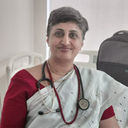
Dr. Ashmitha Padma
General Physician/ Internal Medicine Specialist
5 Years • MBBS, MD Internal Medicine
Bengaluru
Apollo Hospitals Jayanagar, Bengaluru

Dr. Sunil S Bohra
General Physician/ Internal Medicine Specialist
23 Years • MBBS, DNB (Internal Medicine), FIAE
Bengaluru
Apollo Hospitals Sheshadripuram, Bengaluru
(50+ Patients)

Dr. Anand Misra
General Physician/ Internal Medicine Specialist
17 Years • MBBS, DNB (Internal Medicine)
Mumbai
Apollo Hospitals CBD Belapur, Mumbai
(250+ Patients)
More articles from Fever
Frequently Asked Questions
Why is only the female mosquito dangerous?
Female mosquitoes bite humans to obtain a blood meal, which is necessary for them to develop and lay their eggs. Male mosquitoes feed only on plant nectar and do not bite.
What is the best natural mosquito repellent?
While options like citronella, lemon eucalyptus oil, and neem oil have some repellent properties, they are generally less effective and shorter-lasting than EPA-registered synthetic repellents like DEET. For high-risk areas, a proven synthetic repellent is recommended.
Can I get sick from a mosquito bite immediately?
No , There is an incubation period after the bite where the virus or parasite multiplies in your body. This can range from a few days to a few weeks, depending on the disease.
How can I prevent mosquito bites for my baby?
Dress your baby in clothing that covers arms and legs. Cover strollers and baby carriers with mosquito netting. The American Academy of Pediatrics recommends using repellents with up to 30% DEET for children over 2 months old. Always consult your pediatrician for the best advice.
Are there any vaccinations for these diseases?
Yes, but they are disease-specific. A vaccine for malaria (RTS,S) is being implemented in some areas. A vaccine for dengue (Dengvaxia) is available but has specific eligibility criteria. Vaccines for yellow fever and Japanese encephalitis are well-established. There are no widely available vaccines for chikungunya or Zika yet.
